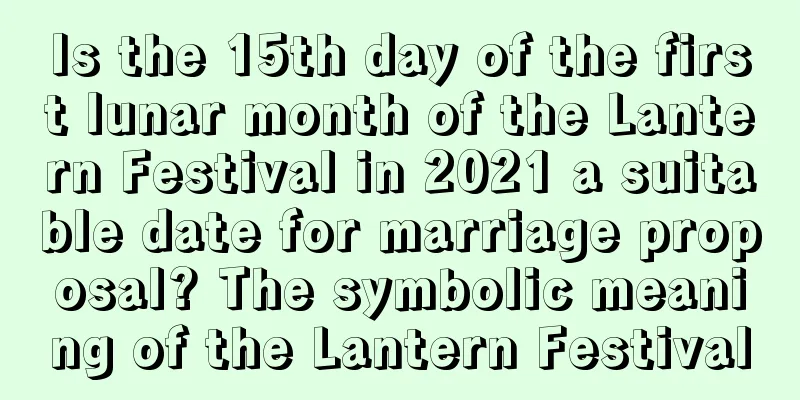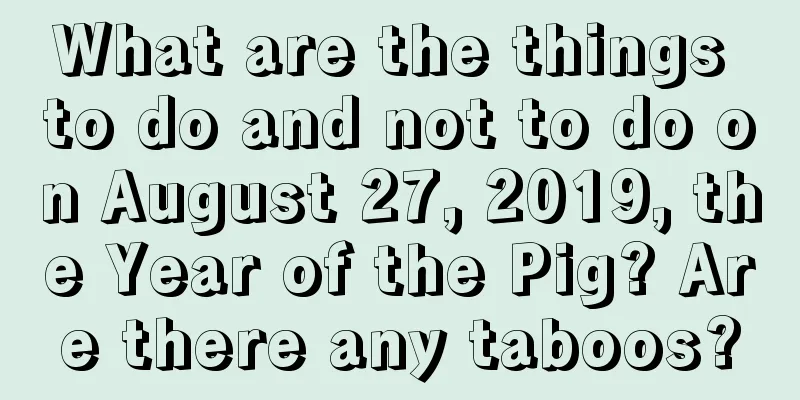When is the Summer Solstice in 2019? What are the customs and practices of the Summer Solstice?

The summer solstice is one of the 24 solar terms. The sun reaches its northernmost point in the year, almost directly above the Tropic of Cancer. When is the Summer Solstice in 2019? What are the customs and practices of the Summer Solstice? The earthly branch of the fifth month in the lunar calendar is Wu, which represents Yang Fire, so it is also called the Wu month. The fifth month in the lunar calendar is the time when summer insects chirp and midsummer is fragrant. For more information on the do’s and don’ts of the fifth month in the lunar calendar in 2019, please pay attention to Mr. Shui Mo’s website!When is the Summer Solstice in 2019?Lunar calendar: May 19, 2019Gregorian calendar: Friday, June 21, 2019 Cancer 【Today’s lunar calendar is suitable】 Pray for blessings, get married, build, break ground, travel, take up a post, collect money, hide treasures, fast and offer sacrifices, accept marriage proposals, recruit sons-in-law, offer sacrifices, seek heirs, remove, erect pillars, raise beams, plant, catch fish, set up beds [Today’s taboos in the almanac] Opening the market, setting up bonds, collecting livestock, breaking ground, drilling, burial, opening warehouses, buying property, migrating, seeking medical treatment, sailing, felling trees According to the lunar calendar, the summer solstice in 2019 is June 21st in the Gregorian calendar and May 19th in the lunar calendar. What are the customs and traditions of the Summer Solstice?Worshipping the gods and ancestors:The summer solstice is the time of wheat harvest. Since ancient times, people have celebrated the harvest and worshipped their ancestors at this time to pray for the elimination of disasters and a good harvest. Therefore, the summer solstice was incorporated into the ancient rituals of worshiping gods as a festival. "The Book of Zhou: Spring Officials" states: "When the summer solstice comes, bring local animals and demons." In the Zhou Dynasty, offering sacrifices to gods at the summer solstice was meant to eliminate famine, hunger and death. The summer solstice falls after the wheat harvest, and farmers thank God for the good harvest and pray for "autumn rewards." Around the summer solstice, some places hold a grand "summer wheat harvest" ceremony, which is a remnant of the ancient "summer sacrifice" activity. Eaten noodles: On the day of the Summer Solstice, people in all parts of Shandong Province generally eat cold noodles, commonly known as "guoshui noodles". There is a saying that goes "dumplings on the Winter Solstice and noodles on the Summer Solstice". In the Laiyang area of Yantai, new wheat is offered on the summer solstice, while in the Huangxian area (now Longkou City, Yantai), new wheat grains are boiled and eaten. Children use wheat straw to weave an exquisite small strainer and scoop the soup into their mouths again and again. It is not only a way to eat the wheat grains, but also a game, which is very interesting in farm life. Eat egg cucumber: The third Geng day after the summer solstice is the first dog days, the fourth Geng day is the middle dog days, and the first Geng day after the beginning of autumn is the last dog days, collectively known as the dog days. During the dog days, people have poor appetite and are often thinner than usual, which is commonly known as "bitter summer". In some places in Shandong, people eat raw cucumbers and boiled eggs to cure "bitter summer". In the morning of the first dog days, they eat eggs and no other food. Summer heat avoidance: On the summer solstice, women give each other folding fans, cosmetics and other gifts. "Youyang Zazu·Liyi" records: "On the summer solstice, fans and powder and rouge bags are presented, and both have words." "Fan" is used to create wind; "powder and rouge" are used to apply on the skin to disperse the turbid air generated by body heat and prevent prickly heat. In the imperial court, after the "summer solstice", the royal family would take out the ice that was "stored in winter for use in summer" to "cool off the summer heat and avoid the dog days". This practice began in the Zhou Dynasty and was followed by successive dynasties, eventually becoming an institutional practice. Origin of Summer Solstice:The summer solstice was also called "Summer Festival" or "Summer Solstice Festival" in ancient times. In ancient times, on the summer solstice, people offered sacrifices to gods and prayed for the elimination of disasters and a good harvest. "The Book of Zhou: Spring Officials" states: "When the summer solstice comes, bring local animals and demons." In the Zhou Dynasty, offering sacrifices to gods at the summer solstice was meant to eliminate epidemics, famines, and deaths from starvation. "Records of the Grand Historian: The Book of Fengshan" records: "On the summer solstice, people offer sacrifices to the earth with music and dance." As an ancient festival, the summer solstice began on the day of the summer solstice in the Song Dynasty, when all officials had three days off. In the Liao Dynasty, "the summer solstice was called the 'Chao Festival,' and women presented colorful fans and gave each other powder and rouge sachets as gifts." In the Qing Dynasty, "the summer solstice was the intersection of the times, and the first hour, second hour, and last hour were called the 'three hours.' People were careful in their daily lives, refrained from cursing, and abstained from shaving their heads, and observed many taboos..."Fate is innate, but fortune can change. Luck varies with the transformation of time and space, and luck is changing. Do you want to know when your good luck will come? Then take a look at the [ Excellent Calculation ] below, and may you have peace and happiness in your life! |
Recommend
Is it a good time to move house on September 16th of the lunar calendar in 2017? Is it a good time to move into a new home?
Good days are always in the late autumn season, a...
Is it auspicious to place the bed according to Yang Gongji on the thirteenth day of the first lunar month in 2020? Is the hexagram today, February 6, a good sign?
Introduction: You need to choose an auspicious day...
What is the fate of a person born in the year of the horse on the Cold Dew Day? Is it a good fate or a bad fate?
Different solar terms have different impacts on pe...
Is it appropriate to offer sacrifices on the 27th day of the twelfth lunar month in 2019? What are the customs on the 27th day of the twelfth lunar month?
Introduction: You also have to choose an auspiciou...
Is it good to be born on February 21st of the lunar calendar in 2022? Boy's fate analysis
Different boys have different fortunes, so let’s t...
What are the commonly used orientation methods of the compass in residential Feng Shui?
Introduction: Compass is an important tool for mea...
Is September 24th of the lunar calendar in 2020, the Year of the Rat, an auspicious day for ancestor worship?
Is September 24th of the lunar calendar in 2020, t...
Is the third day of the ninth lunar month in 2019 a good day?
Is the third day of the ninth lunar month in 2019...
Can't I send winter clothes late on October 1, 2019? What are the rules for sending winter clothes?
Many people are busy at work now and cannot rush h...
Is the tenth day of the seventh lunar month in 2021 an auspicious day? Is it okay to make the bed that day?
There are certain requirements and rules for choos...
Is it good for a baby born on March 3rd? The fortune of a baby born on the third day of the third lunar month
March 3rd is a traditional festival for many ethni...
What day does the 24th day of the first lunar month in 2020 correspond to in the Gregorian calendar?
What day does the 24th day of the first lunar mon...
Why do we eat rice cakes during Chinese New Year? What is the origin of eating rice cakes?
During the Spring Festival, people in many parts o...
Is November 29th, New Year’s Day, 2021 suitable for travel? What's the omen for this day?
The eleventh month of the lunar calendar is the se...
2017 Leap June 9th day of the lunar month: Query the position of the God of Happiness. Where is the position?
The Fortune Teller website has carefully compiled...









